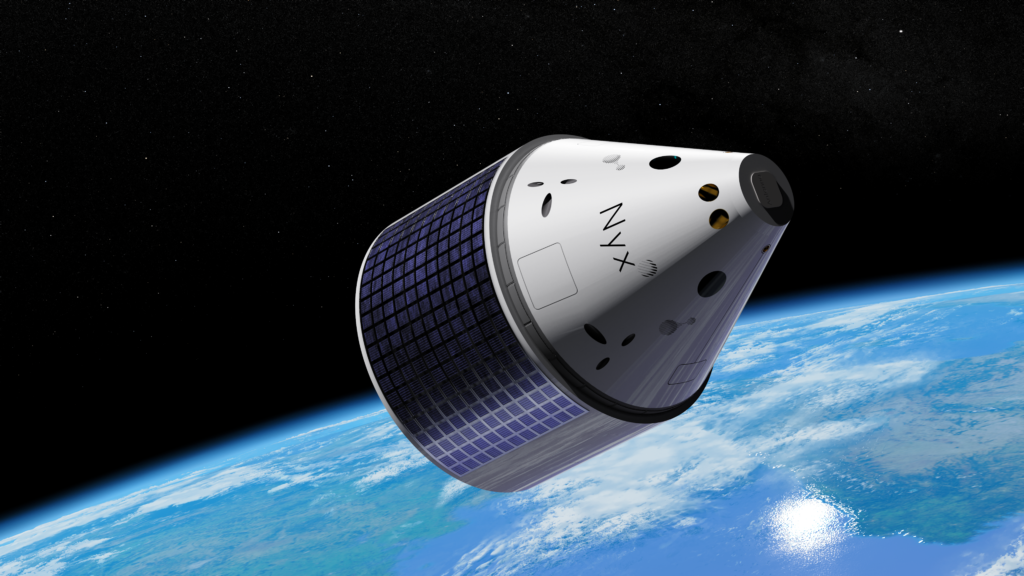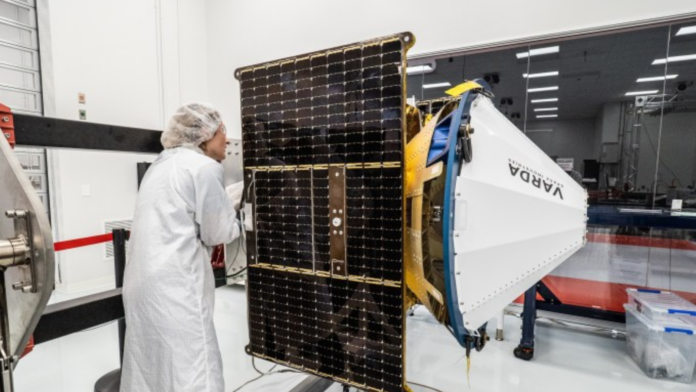Imagine the anticipation of finally seeing the extraordinary results of in-space manufacturing, only to have those plans put on hold. That’s exactly what Varda Space Industries is experiencing as the U.S. Air Force and Federal Aviation Administration (FAA) have denied requests for the startup’s orbital factory reentry. Varda had planned to bring back a capsule containing crystals of ritonavir, a drug used to treat HIV, but now their reentry is delayed pending approval from the Air Force and FAA. While Varda remains optimistic and indicates that their spacecraft is healthy and capable of surviving on-orbit for up to a year, they are now working on presenting alternate plans to bring the capsule safely back to Earth. The delays in clearance for reentry highlight the need to establish precedents for future commercial reentry activity and ensure safety and compliance.
Application for commercial space license denied by U.S. Federal Aviation Administration (FAA)
Hey there! We’ve got some news about Varda Space Industries. It seems like they’ve hit a bit of a roadblock in their plans to land their capsule at a Utah training area. The U.S. Air Force has denied their request, which means their plans for in-space manufacturing will have to be put on hold for now. Not only that, but their application for a commercial space license was also denied by the U.S. Federal Aviation Administration (FAA). It’s definitely a setback for Varda, but they’re not giving up just yet!
Varda Space’s original plan to bring back capsule containing ritonavir crystals delayed
New target dates for reentry set for September 5 and 7
Spacecraft confirmed to be healthy and can survive on-orbit for up to a year
Varda Space originally had plans to bring back a capsule containing ritonavir crystals, a drug used to treat HIV, in mid-July. However, they announced that the reentry had been delayed. According to a source, the new target dates for reentry are set for September 5 and 7. Despite the setbacks, the good news is that the spacecraft is confirmed to be healthy and can survive on-orbit for up to a year. Varda is working closely with regulators to ensure a safe and successful return of the capsule to Earth.

This image is property of techcrunch.com.
FAA denies Varda Space’s reentry license application
Company requests reconsideration of the decision
Unfortunately, Varda Space’s reentry license application was denied by the FAA on September 6. The FAA stated that the company did not demonstrate compliance with the regulatory requirements. However, Varda is not giving up. On September 8, they formally requested that the FAA reconsider their decision. The request is currently pending, and Varda is hopeful that the reconsideration will result in a positive outcome.
FAA prepared draft environmental assessment on Varda’s reentry mission
Six potential landing locations considered: UTTR, White Sands Missile Range, Fallon Range Training Complex, Nevada Test and Training Range, Barry M. Goldwater Range, and Oregon’s Naval Weapons Systems Training Facility Boardman
Only UTTR met all of Varda’s site selection criteria
UTTR has hosted previous capsule recovery missions
In preparation for Varda’s reentry mission, the FAA prepared a draft environmental assessment. They considered six potential landing locations for the capsule: the Utah Test and Training Range (UTTR), White Sands Missile Range in New Mexico, Fallon Range Training Complex in Nevada, Nevada Test and Training Range, Barry M. Goldwater Range in Arizona, and Oregon’s Naval Weapons Systems Training Facility Boardman. Out of these options, UTTR was the only location that met all of Varda’s site selection criteria.
It’s worth noting that UTTR has hosted previous capsule recovery missions, including NASA’s Genesis sample-return mission in 2004 and Stardust comet-sampling mission in 2006. This track record of successful recoveries adds to the credibility and reliability of UTTR as a landing site for Varda’s capsule.
Varda’s proposed reentry cadence is monthly by 2026
Clearances for reentry taking longer due to new precedents being set
Objective at UTTR is working with customers for safe and sustainable reentry missions
Varda has set an ambitious goal of conducting monthly reentry missions by 2026. However, due to the unique nature of their proposed cadence, the clearances for reentry are taking longer than anticipated. The Air Force spokesperson mentioned that the process is aimed at “setting the correct precedents” for future commercial reentry activity.
The objective at UTTR is to work with customers, including Varda, to ensure safe, secure, and sustainable reentry missions. The goal is to lay the groundwork for future activities in this field and establish best practices. The spokesperson emphasized that this is a collaborative effort involving the whole government and multiple agencies to ensure the success of missions like Varda’s.
Varda is using Rocket Lab’s Photon spacecraft for missions
Photon provides power, data, and attitude control for the mission
Rocket Lab’s spacecraft will burn up in the atmosphere upon reentry
Varda has teamed up with Rocket Lab and is utilizing their Photon spacecraft for their missions. The Photon spacecraft plays a crucial role in Varda’s operations as it provides power, data, and attitude control for the mission. It serves as the platform for Varda’s 120-kilogram manufacturing capsule.
During reentry, Rocket Lab’s spacecraft will burn up in the Earth’s atmosphere, as planned. However, Varda’s capsule will proceed with its descent, release parachutes, and safely land on Earth. This partnership allows Varda to leverage Rocket Lab’s expertise and resources for a successful mission.
FAA license for Varda Space denied
To wrap things up, Varda Space Industries has faced some obstacles when it comes to obtaining the necessary approvals for their reentry mission. Both the U.S. Air Force and the FAA have denied their requests for landing at a Utah training area and a commercial space license, respectively. However, Varda is not giving up and has requested that the FAA reconsider their decision. With their commitment to collaboration and safety, Varda aims to overcome these challenges and continue their mission of innovative space exploration.











